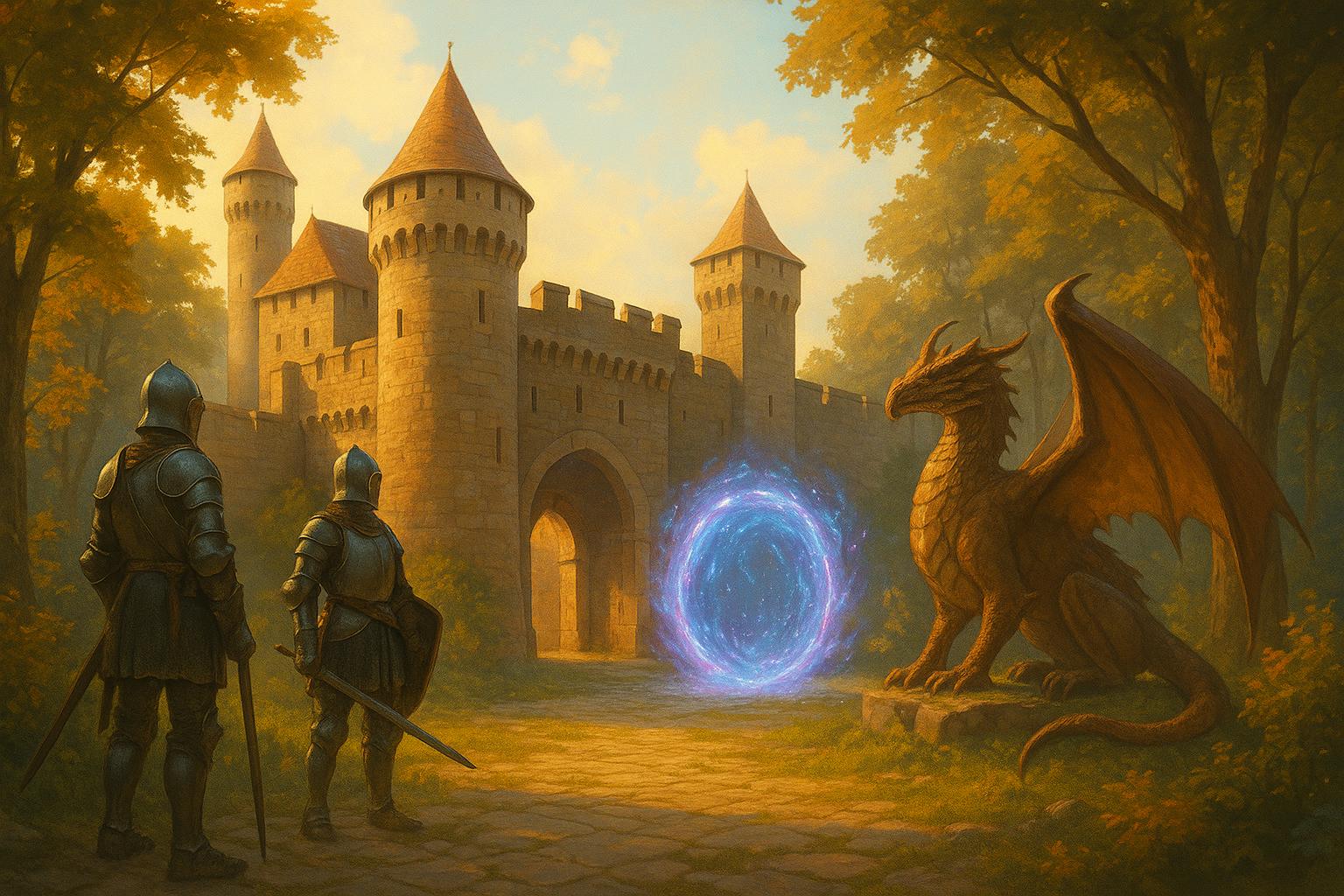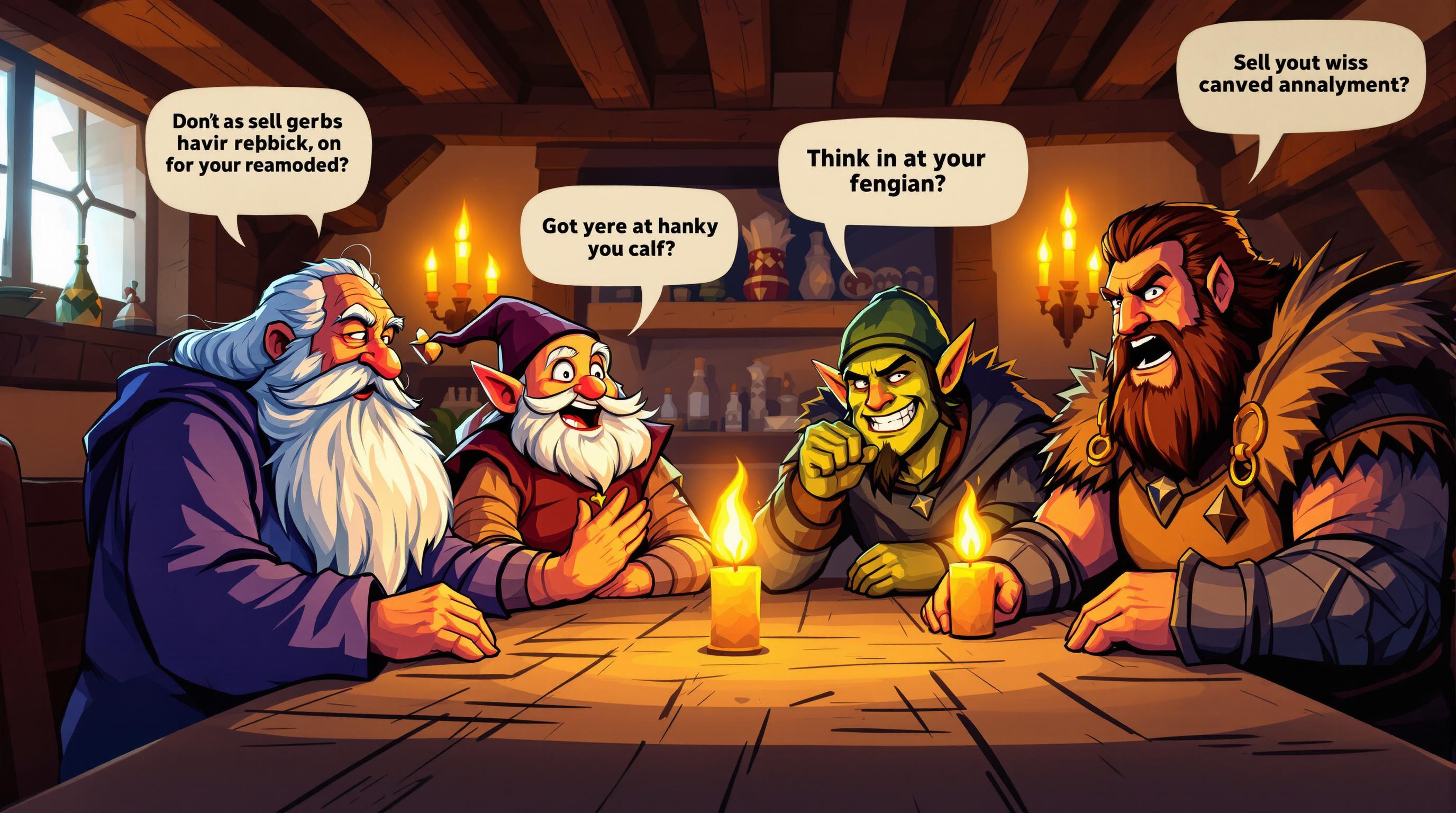Feedback helps Game Masters (GMs) improve their tabletop RPG campaigns by addressing player preferences, fixing issues, and enhancing collaboration. Here’s a quick look at the best tools for collecting and using feedback effectively:
- Player Suggestion Boards: Tools like Feature Upvote let players share and vote on ideas.
- Community Forums: Organized discussions for detailed feedback on topics like rules and storytelling.
- Surveys and Polls: Platforms like Google Forms gather structured insights on game mechanics and pacing.
- In-Game Feedback: Methods like "Stars and Wishes" capture highlights and areas for improvement after sessions.
- Social Media Platforms: Discord channels enable real-time feedback and creative incentives for participation.
These tools simplify feedback collection, helping GMs craft better campaigns while keeping players engaged. Below, we dive into each tool and how to use them effectively.
The Player Survey I Use to Improve My D&D Games
Effective Feedback Tools for Game Masters
Game masters have a range of tools at their disposal to make collecting feedback from players easier and more effective. These tools help ensure campaigns match player expectations, leading to a more engaging and enjoyable experience.
1. Player Suggestion Boards
Platforms like Feature Upvote offer a simple way to manage player feedback. Players can submit ideas, vote on suggestions, and discuss them in one place. This approach helps reduce duplicate feedback and encourages collaboration. Game masters can organize suggestions into categories (like mechanics, story, or house rules) and mark them as completed when updates are made.
2. Community and Forum Platforms
Forums dedicated to tabletop role-playing games (TTRPGs) are great for deeper conversations. By organizing forums into topics like campaign feedback, rules, or world-building, discussions become easier to follow. Regular participation by the game master shows players their opinions are valued and encourages more meaningful contributions.
3. Surveys and Polling Tools
Tools such as Google Forms and SurveyMonkey allow game masters to gather structured feedback. Use scales, multiple-choice questions, or open-ended responses to collect thoughts on mechanics, storylines, session pacing, and player engagement.
4. In-Game Feedback Mechanisms
The "Stars and Wishes" method offers a quick way to gather feedback right after a session. Players share one highlight (a star) and one area for improvement (a wish). This straightforward system captures both what worked well and what could be adjusted, keeping feedback constructive and actionable.
5. Social Media and Content Platforms
Discord stands out as a valuable tool for real-time communication and feedback. Dedicated channels can focus on specific topics like session reviews, rules, or world-building ideas. For a creative twist, consider offering in-game rewards for detailed feedback, much like TapResearch's approach with rewarded surveys [1].
With these tools, game masters can better understand their players' needs and preferences. Up next, we’ll look at additional resources to take your campaigns to the next level.
sbb-itb-b8b00a5
Useful Resources for Game Masters
Game masters have access to a variety of tools that can help them incorporate player suggestions and manage campaigns more efficiently. These resources are designed to assist with everything from creating immersive worlds to discovering new game systems.
TTRPG Games Directory

The TTRPG Games Directory is a go-to platform for exploring different tabletop RPG systems and mechanics. It provides detailed breakdowns of both classic and indie games, making it easier to find options that align with your group's preferences - whether that's strategic combat, rich storytelling, or character-focused gameplay. This is especially helpful when players suggest experimenting with new mechanics or genres.
World-Building and Campaign Tools
Tools like World Anvil and Obsidian Portal are great for creating and managing campaigns:
- World Anvil ($4.99/month, 4.9/5 Trustpilot): Offers in-depth world-building features, such as tools for tracking NPCs, mapping locations, and organizing timelines.
- Obsidian Portal ($5/month, 4.5/5 Capterra): Focuses on collaboration, providing campaign wikis and tools accessible to players.
| Platform | Key Features | Starting Price | Rating |
|---|---|---|---|
| World Anvil | NPC tracking, Timeline tools, Location mapping | $4.99/month | 4.9/5 |
| Obsidian Portal | Campaign wikis, Player collaboration tools | $5/month | 4.5/5 |
Narrative and Immersion Tools
If you're looking to enhance storytelling and immersion, dScryb ($4.99/month, 4.7/5) is a great option. It provides pre-written descriptions for scenes and characters, helping game masters add depth to their narratives - perfect for addressing feedback about improving the story experience.
Using Feedback to Improve Your Game
Turning player feedback into actionable changes requires a clear process. Game masters need to carefully review, categorize, and apply suggestions while keeping the game balanced and enjoyable for everyone.
Sorting Feedback
Break down feedback into categories to spot trends and decide what to address first:
- Mechanical Issues: Rules clarity, combat dynamics, skill checks
- Narrative Elements: Story pacing, character arcs, plot engagement
- Technical Aspects: Session timing, breaks, performance of virtual tools
By organizing feedback systematically, you can uncover patterns and focus on areas that need attention. Once sorted, it’s time to figure out which changes are worth prioritizing.
Weighing Player Input
Not every suggestion holds the same value. Use these factors to assess the importance of feedback:
| Priority Factor | Explanation |
|---|---|
| Frequency | How often an issue is mentioned - frequent issues are likely more pressing. |
| Severity | How much it disrupts the game’s flow or enjoyment. |
| Implementation Effort | The time and resources needed to address the problem. |
| Game Balance | How the change might affect existing mechanics and the overall experience. |
For example, if multiple players point out a recurring mechanical issue, it should take precedence over a single player's specific narrative preference [2]. This ensures adjustments benefit the group as a whole.
Implementing and Testing Changes
Start small when making changes. For instance, try tweaking initiative rules during one encounter and gather immediate feedback. Use in-game tools to gauge the impact and adjust as needed. Platforms like World Anvil can help you track updates and maintain consistency across sessions.
Conclusion: Enhancing the Game Master Experience
The strategies and tools discussed here help game masters fine-tune their campaigns and craft experiences that truly connect with players. By using structured feedback systems, GMs can create sessions that feel more engaging and personalized, all while maintaining their creative vision.
Game masters who actively seek feedback often notice better player engagement, smoother gameplay, and improved storytelling. While gathering feedback might seem like a lot of work, specialized tools make it easier to collect and act on useful insights.
These tools simplify the process, allowing GMs to address player preferences and improve their campaigns efficiently. Resources like the TTRPG Games Directory also provide opportunities to explore different systems and mechanics, keeping campaigns fresh and aligned with what players enjoy.
Building trust and collaboration is key to making feedback work. When players feel their input matters, it strengthens group dynamics and leads to more fulfilling campaigns. By consistently gathering and applying feedback, GMs can create dynamic, evolving experiences that keep players engaged and excited.


